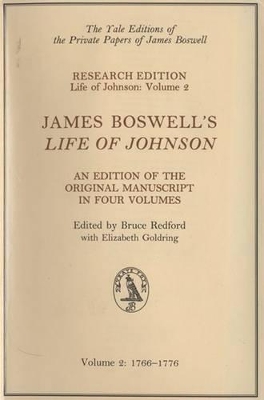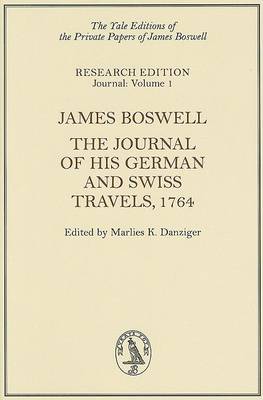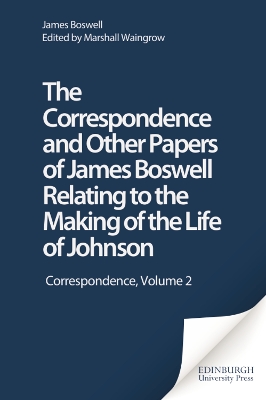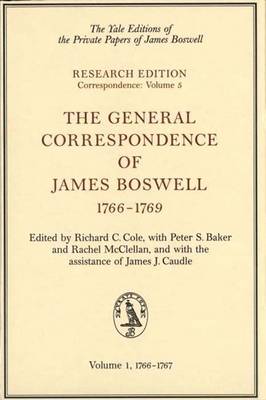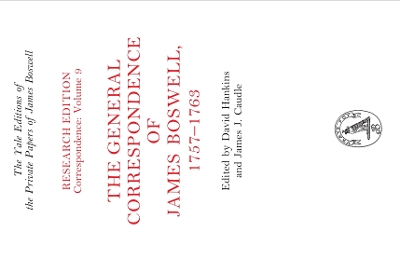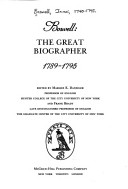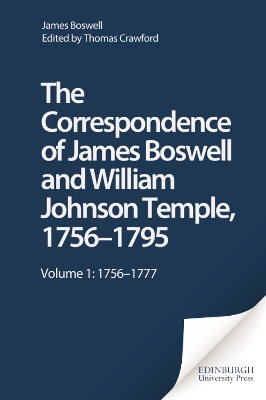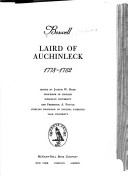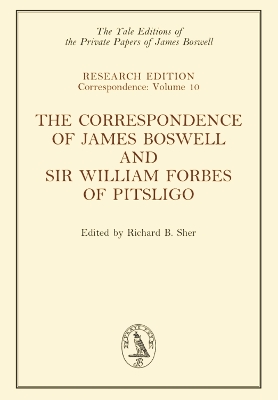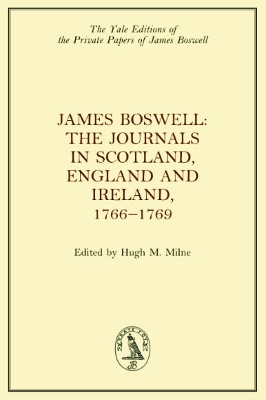The Yale Editions of the Private Papers of James Boswell
1 primary work • 14 total works
Book 4
This volume, first in the Yale Research Series of Boswell's journals, covers his emotionally eventful travels as a young man through the German and Swiss territories. It begins in mid-June 1764 and ends on New Year's Day 1765, when he crossed the Alps for the next stages of his European tour in Italy, Corsica, and France. The volume includes the complete text of Boswell's diaries and memoranda, as well as a daily record of expenses and his frequently revealing "Ten Lines a Day" poems. This volume is the Research Series parallel to the 1953 trade series edition, Boswell on the Grand Tour: Germany and Switzerland, 1764, whose annotation the editor, Marlies K. Danziger, expands, supplements, and, in many instances, corrects.
' This corrected and enlarged version (the first edition has been out of print for two decades) will serve as a valuable supplement and companion to the Yale manuscript edition of the Life of Johnson, upon which all future editions of Boswell's biography will need to draw.
Volume I of the edition contains letters between Boswell and a rich diversity of correspondents, including Giuseppe Baretti, William Pitt the Elder, Voltaire, Jean-Jacques Rousseau, John Wilkes, and Zelide, the beautiful Dutch bluestocking. The texts have been transcribed from the original manuscripts. Carefully introduced and thoroughly annotated, the volume will be read with pleasure as well as for enlightenment.
Boswell's first book-length publication, and the first to bear his name, offer revealingly early evidence of the kinds of selective self-revision Boswell would employ in his later writings and perfect in the Life of Johnson (1791). Overall, these letters document Boswell's fluid experiments in selfhood as he ponders his life's future possible trajectories - as soldier, lawyer, wit, author, bon-vivant, Scots laird, or M.P. Some thirty-five correspondents are represented in more than 150 letters and other documents (such as verse-epistles), comprehensively annotated to the long-established standards of the Yale Boswell Editions.
v. 8
The Correspondence of James Boswell with James Bruce and Andrew Gibb, Overseers of the Auchinleck Estate
by James Boswell and etc.
v. 6
The Correspondence of James Boswell and William Johnson Temple, 1756-1795
by James Boswell and William Johnson Temple
The Correspondence of James Boswell and Sir William Forbes of Pitsligo
by James Boswell
